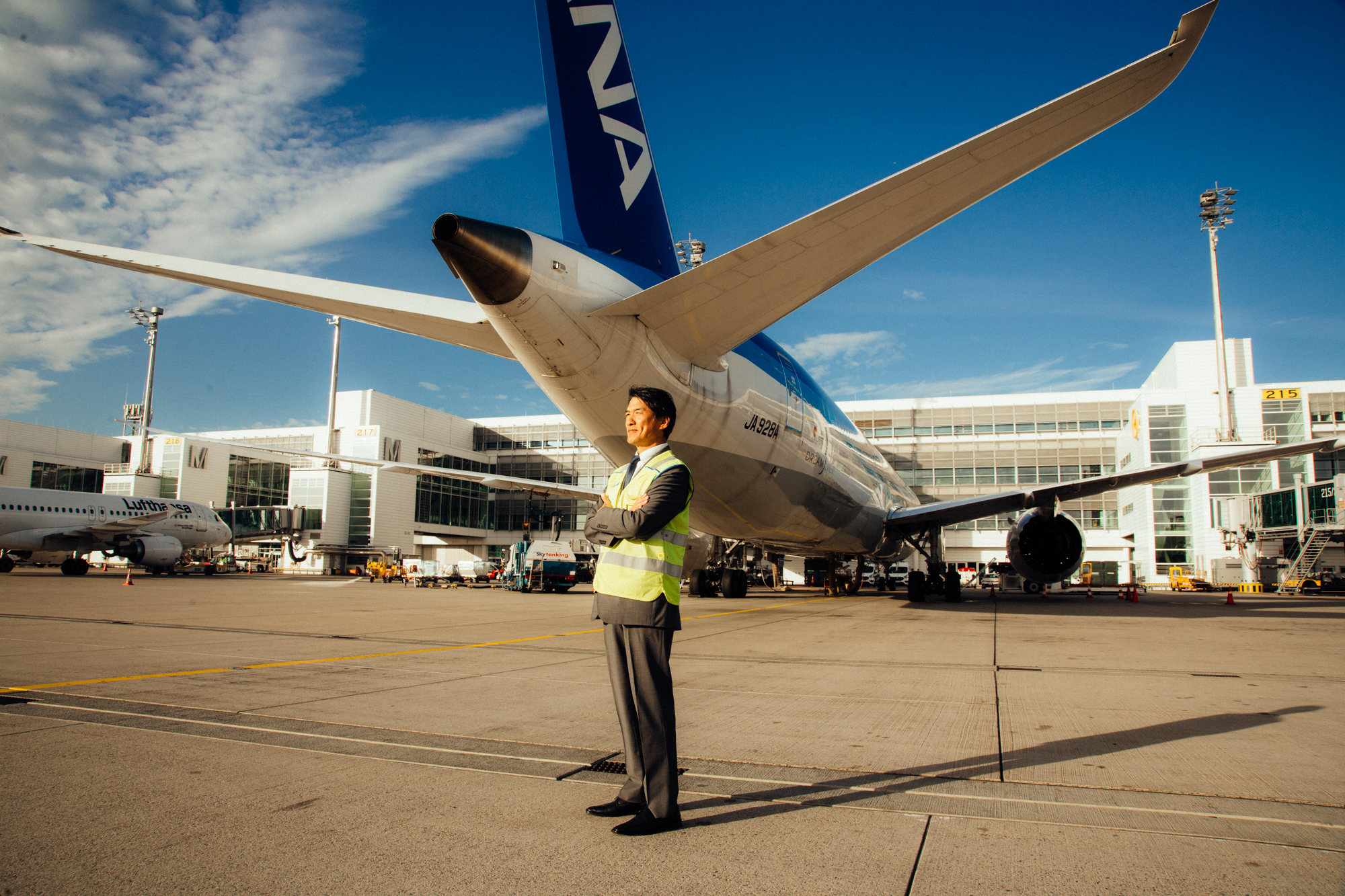SMC is a manufacturer and solution provider for pneumatic and electrical automation technology. In addition, the company develops and manufactures solutions in close cooperation with its customers in Germany. J-BIG spoke with the three-member top management team of SMC Germany, Managing Director Ralf Laber, Sales Manager Christian Ziegler and Pascal Borusiak, responsible for Operations, about what makes SMC a sustainable company and what is behind the Japanese principle of “Muda” (無駄).
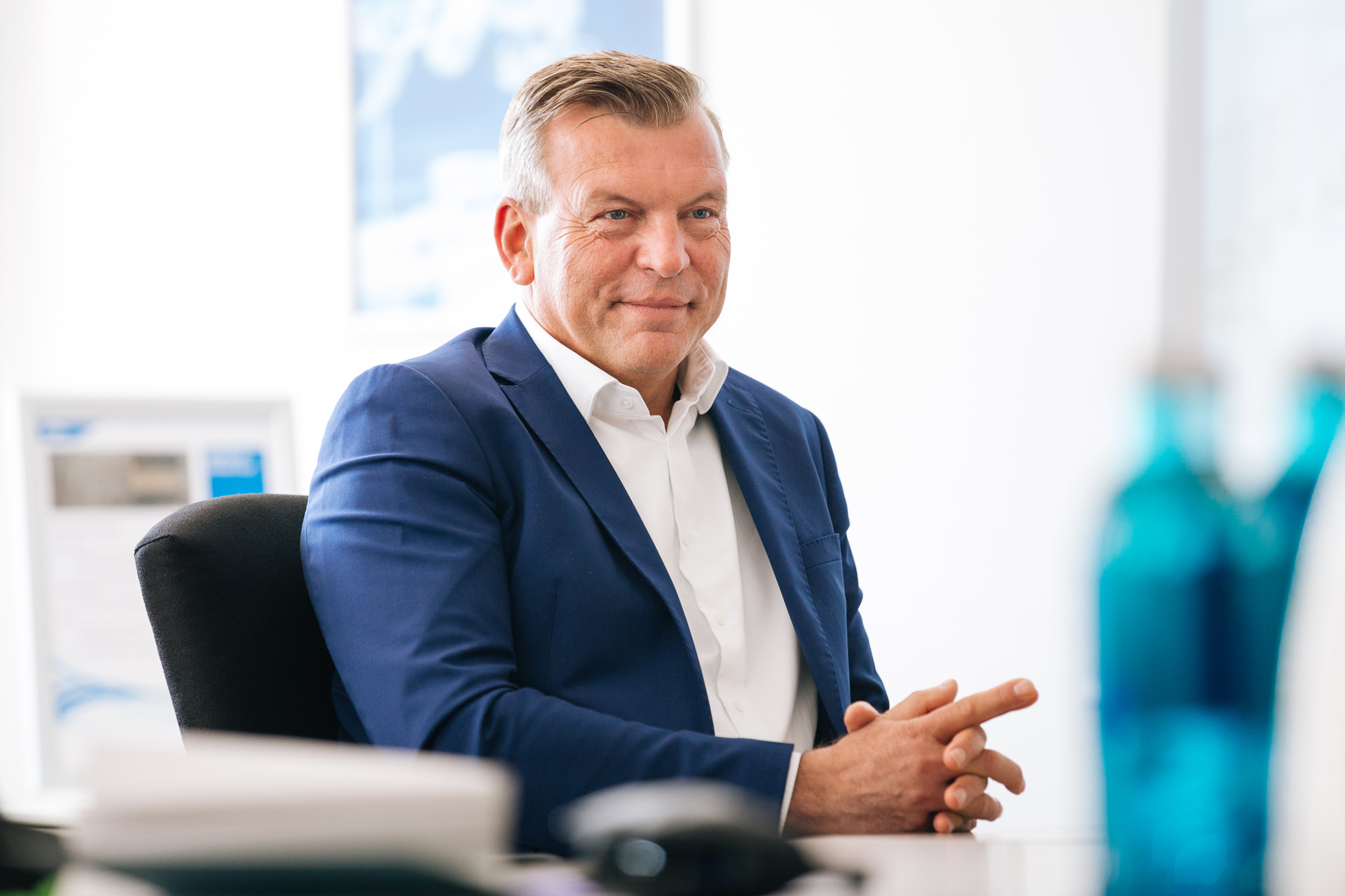
J-BIG: Let’s start with a look into the past: How did it all start with SMC?
Ralf Laber: SMC Corporation was founded in 1959, at that time still under the name Sintered Metal Corporation. The focus of the company was on the production and sale of so-called sintered metal elements. Our founder Yoshiyuki Takada had an idea that was absolutely new at the time.
J-BIG: Why are such sintered metal elements needed?
Ralf Laber: They are used in industrial companies to filter or process compressed air or oil. Our focus was on air. Purified air is needed, for example, to drive various tools, such as pneumatic screwdrivers used for assembly. We compress, clean and dry the air so that it contains no particles or moisture and does not harm the tool. In 1984, there was a symbolically important milestone from my point of view, namely the change of name from Sintered Metal Corporation to SMC Corporation. At that time, the company was no longer only dealing with sintered metals, but with the whole spectrum of pneumatic automation technology. In the same year, SMC went public. That was the real birth of the SMC company. Today, SMC is a globally active company. We are the world market leader when it comes to industrial automation. Both pneumatic and electric. This means that we have expanded our product portfolio enormously, currently employ almost 22,000 people in 83 countries and operate production sites in 31 countries.
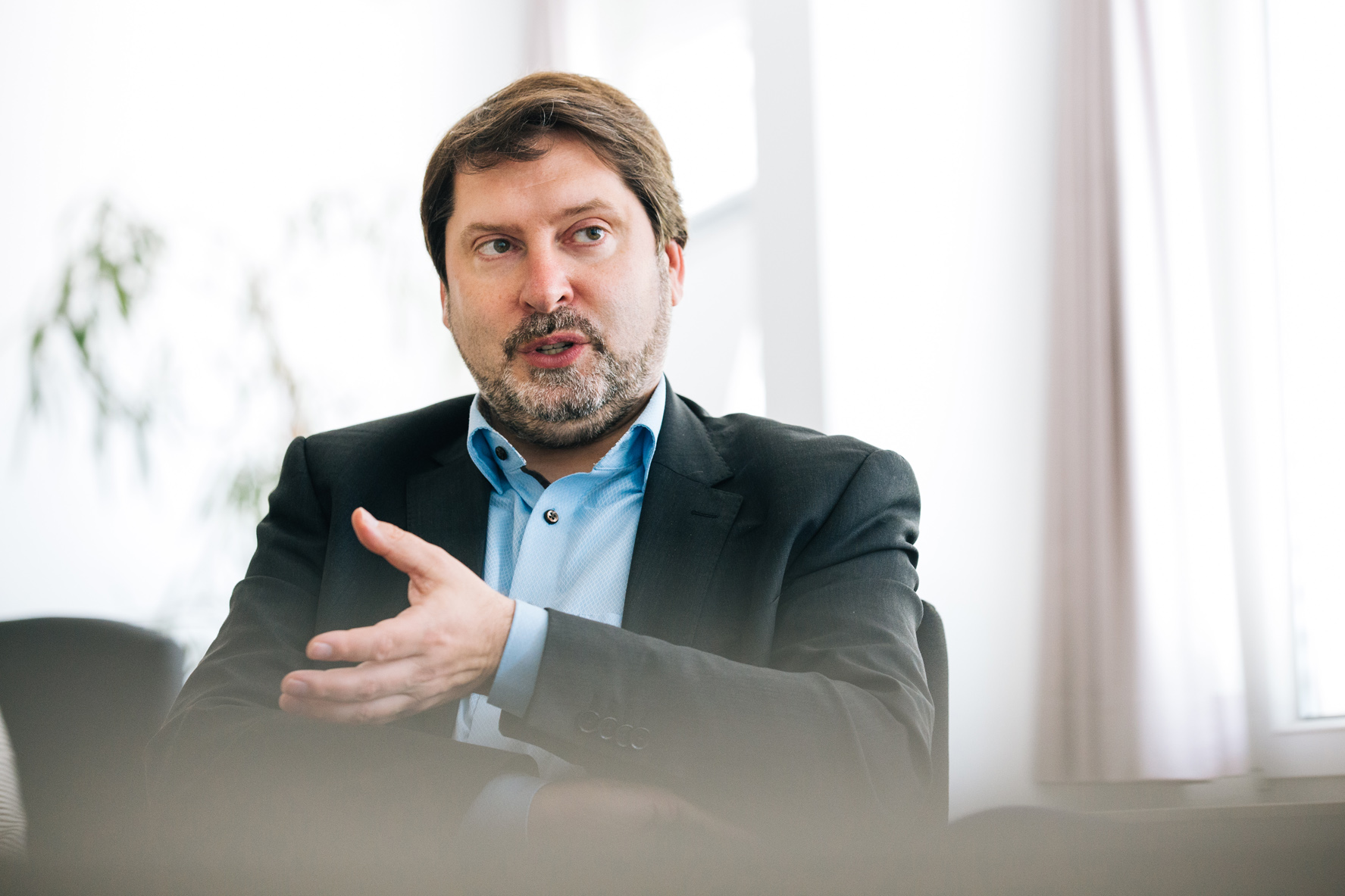
J-BIG: Who are the main buyers of your products today?
Ralf Laber: Mainly machine builders who come from different industries. Originally, our biggest customer was actually the automotive industry in Japan. We then developed further with the electronics industry, where semiconductor elements were manufactured. Today, our main customers are also active in machine tools, up to the packaging machine sector and in the medical technology environment. This continuous development in various industries has also brought with it new product developments and we expanded our portfolio. Today, there is actually no well-known industry in which SMC is not active in some way.
Christian Ziegler: The biggest industry for us in this country at the moment is food packaging – here our products play an important role in factory automation. This industry has overtaken domestic vehicle manufacturing in recent years.
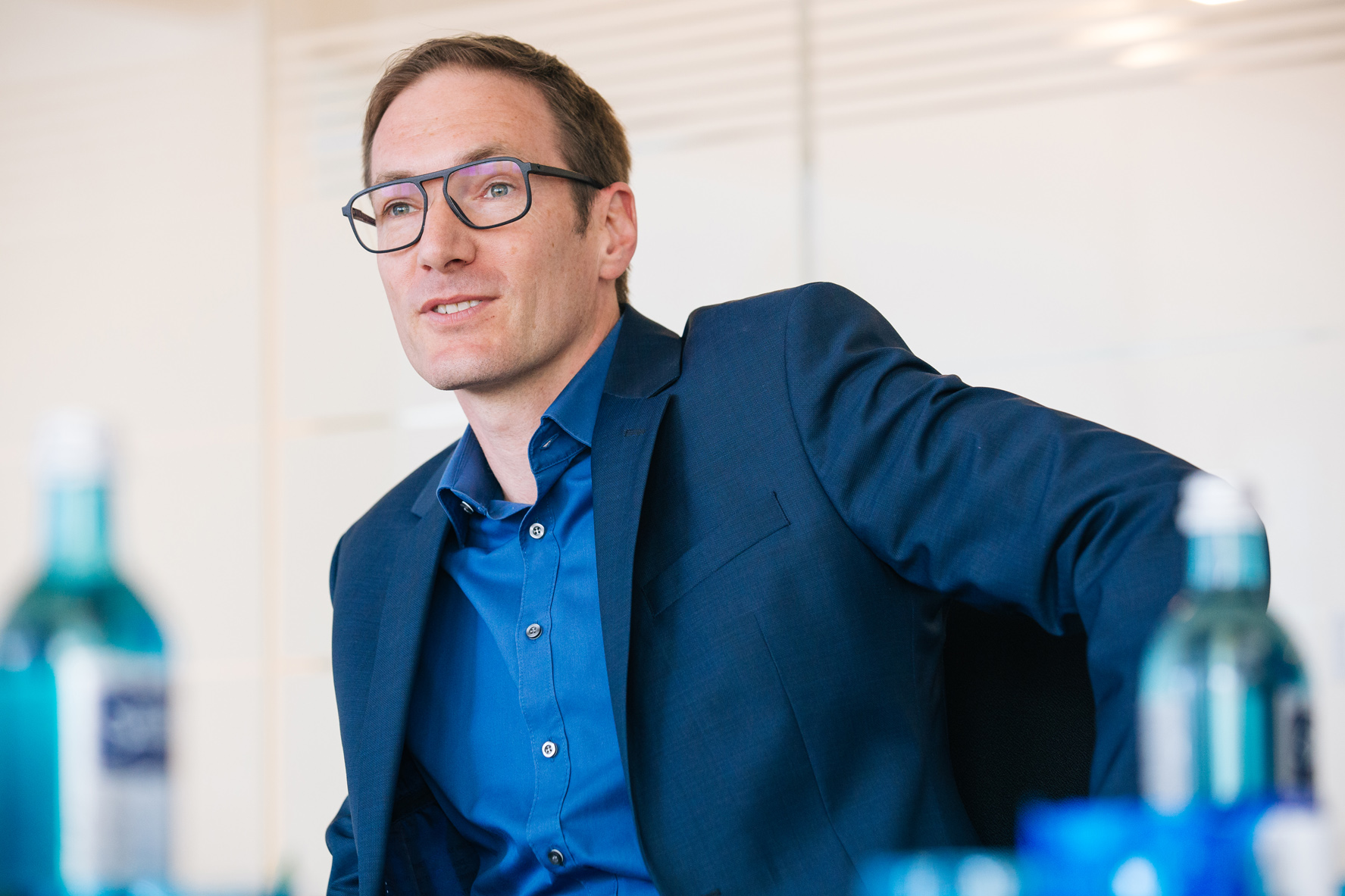
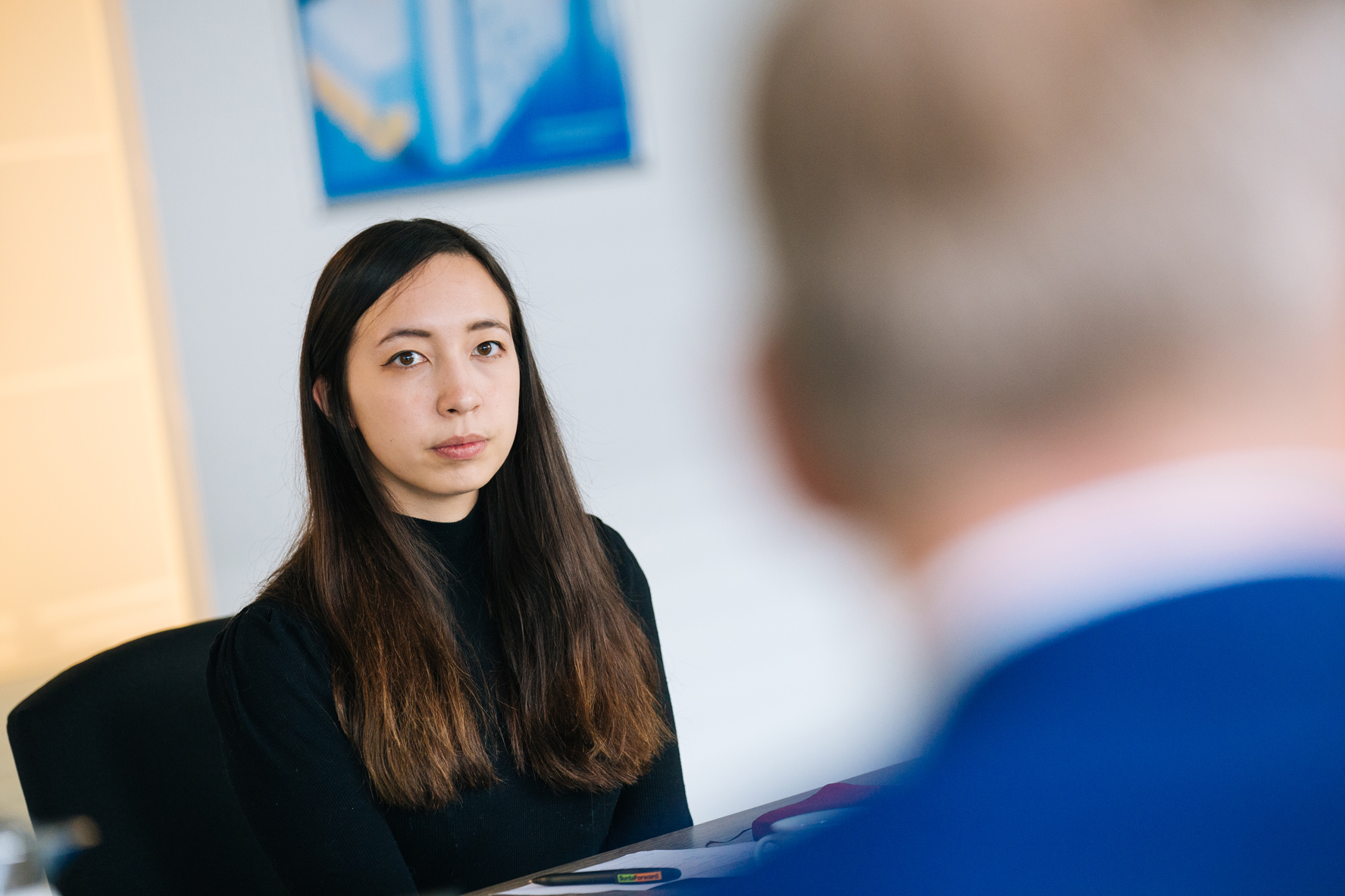
J-BIG: When and how did SMC originally come to Germany?
Ralf Laber: SMC has a specific focus that has always characterised the company: the topic of resource conservation and the avoidance of waste, called “Muda” (無駄) in Japan. With our product portfolio, we were able to achieve good success in the German market very quickly because we make things smaller and lighter. We grew quickly with that. We rented an office in Frankfurt in 1978, initially with five employees. In 1984, we moved to our location in Egelsbach. We started with an administration building and a small warehouse with a very manageable production. This was then continuously expanded over the last few years. The big leap for SMC in Germany came in 2017, when we changed the name of SMC Pneumatik to SMC Germany. Our product portfolio has grown strongly and we have focused on additional industries
J-BIG: What role does the German company play today for the company as a whole?
Pascal Borusiak: In Germany, we currently generate a turnover of about 200 million euros. We thus contribute about four to five percent of the group’s total turnover. This makes Germany, along with Japan, China, the USA and Italy one of the most important markets. We have purchased 80,000 square metres of land at the Egelsbach site. A new warehouse and expanded production will go into operation there in 2022. We have 735 employees, 385 of whom work at the site itself. 350 employees have a sales focus – a really strong team.
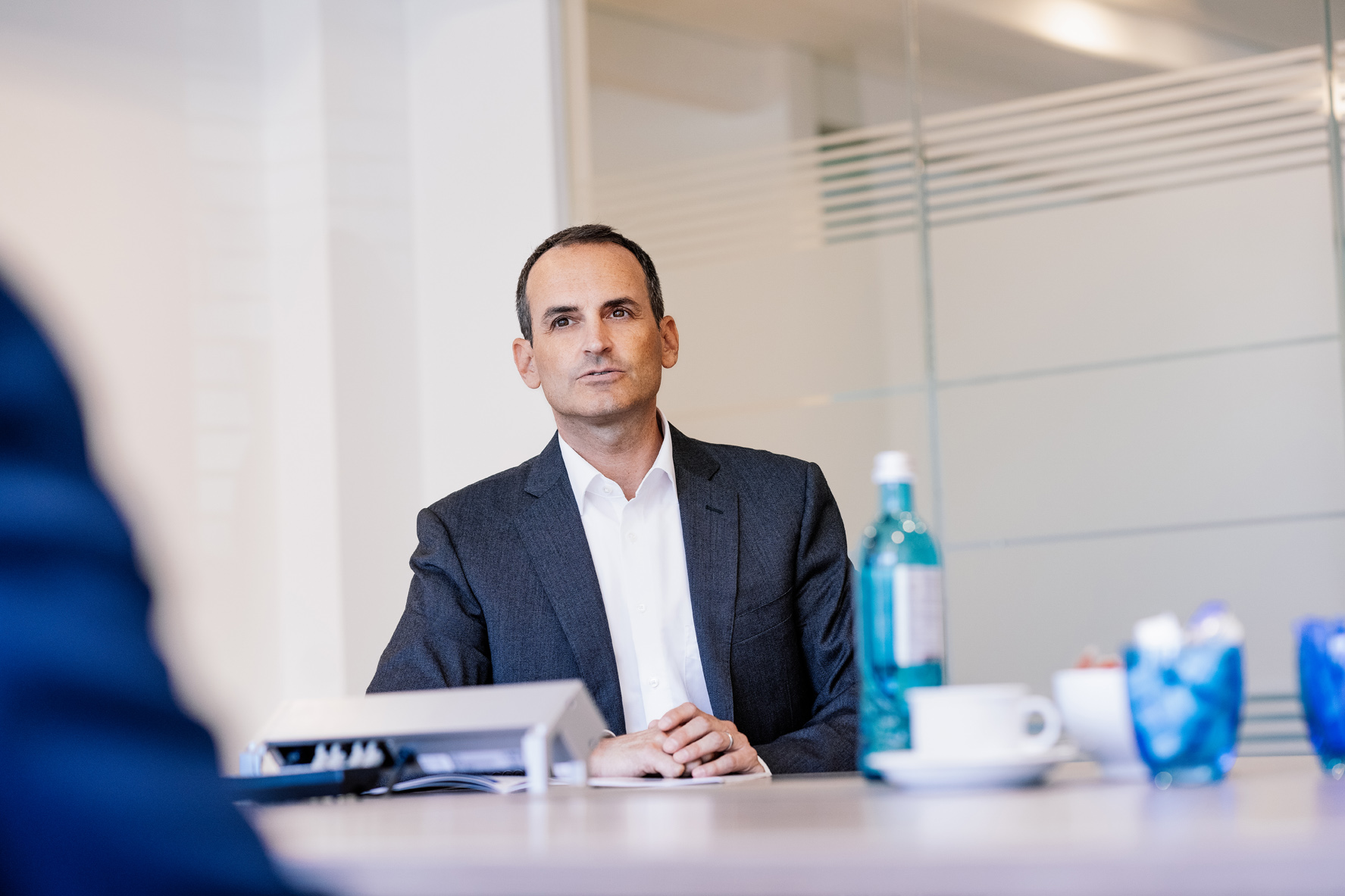
J-BIG: What are you trying to achieve in Germany?
Christian Ziegler: In global terms, SMC is number one and the world market leader. But that is not yet the case here in Germany, where we are number two. This means that we are in a position to attack and gain market share, which we have been doing very well for years. One of our strengths is that we see ourselves as a partner to our customers. Our engineers turn a concrete requirement into a customer-specific solution. Ultimately, we don’t have a solution that the customer can only use 80 per cent of, but has to pay 100 per cent for. The customer only pays for what he really needs. This has always been a Japanese approach at SMC, and it is particularly fitting today.
J-BIG: Why is that?
Pascal Borusiak: Here, too, you can recognise the Japanese principle of “muda”. Everyone is concerned with the 17 Sustainable Development Goals (SDGs) of the United Nations and ultimately with the question: How can I save resources? How can I build something particularly sustainable? How do I make the footprint I leave as a company as small as possible on this planet? And that is something SMC has always done. We are about designing, building and implementing smaller, lighter, more compact and particularly durable. So that’s a fundamental attitude and mindset at the heart of SMC. And this attitude is somewhat at odds with the typical German attitude in engineering, where things always have to go higher, faster and further. SMC deals with the specific customer challenge and tries to solve the problem with the least amount of effort. This is a fundamental attitude and approach that we, as a Japanese company, have in our DNA.
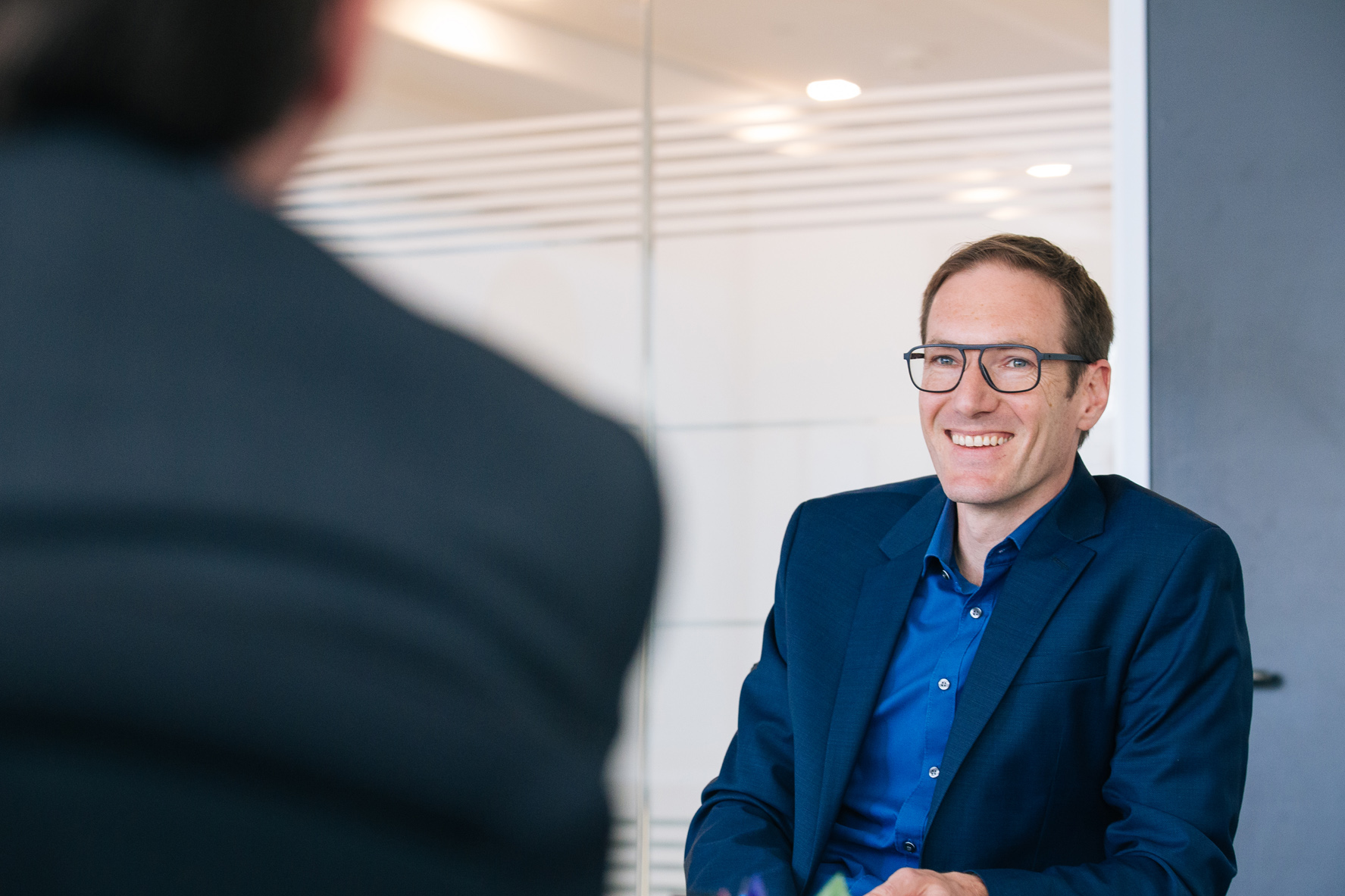
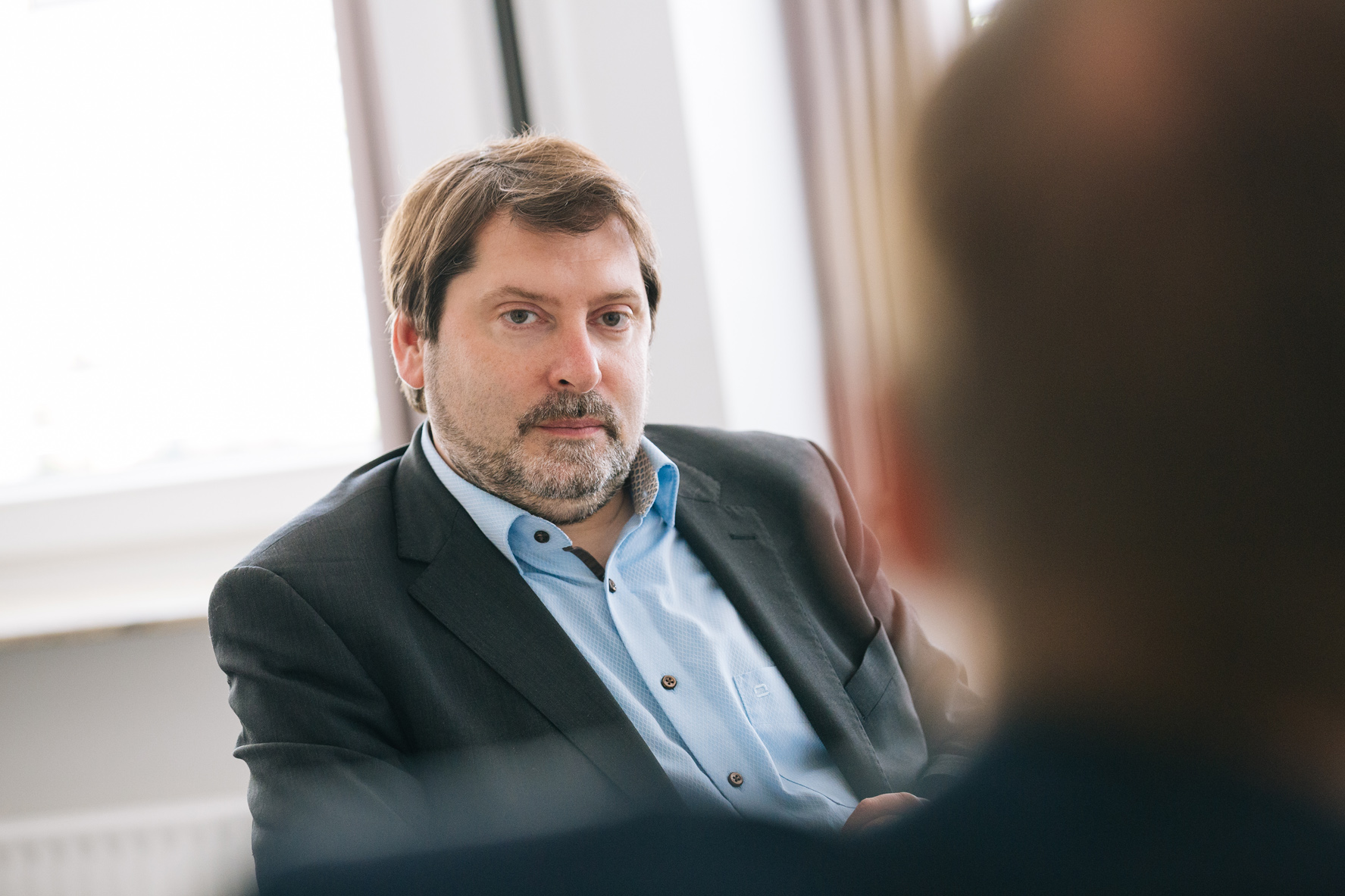
J-BIG: What else is special about SMC?
Ralf Laber: SMC may be a global corporation, but we still have the culture of a family business. From my point of view, that is something that is really very different from the large corporations I know in Germany. Pascal, I know you also experienced our founder Yoshiyuki Takada. He really is like a father who treats his employees accordingly. At the same time, we enjoy a high degree of trust from the Japanese management. Because they say, “This is your responsibility, you know the market best.” SMC also thinks and acts in the long term. We don’t have a “hire and fire” mentality here. That’s something we personally appreciate and what sets us apart from other companies.
Pascal Borusiak: Also the topic of shareholder value. This term does not exist at all in SMC’s linguistic jargon, although we are a listed company. That is typical for us. We have a positive-critical exchange, especially under our new president.
Free Subscription
“J-BIG – Japan Business in Germany” is the e-mail magazine dedicated to Japanese companies and their business activities in the German market.
J-BIG: So there has recently been a generational change at SMC?
Ralf Laber: Mr Yoshiyuki Takada retired at the age of 93. Before that, he was in the company every day and still made all the decisions. His son, Yoshiki Takada, was the Managing Director in America for 30 years and built up SMC Corporation USA there. Then he came back to Japan. We were always in touch with Japan before, but you can see the cultural differences in terms of communication. Under Yoshiyuki it was very hierarchical and it still is in Japan. His son Yoshiki promotes a new style of communication that is much more open and direct, somehow more international. For a company that has lived in more traditional structures for 60 years, this is of course something new. The culture of cooperation is changing a lot right now.
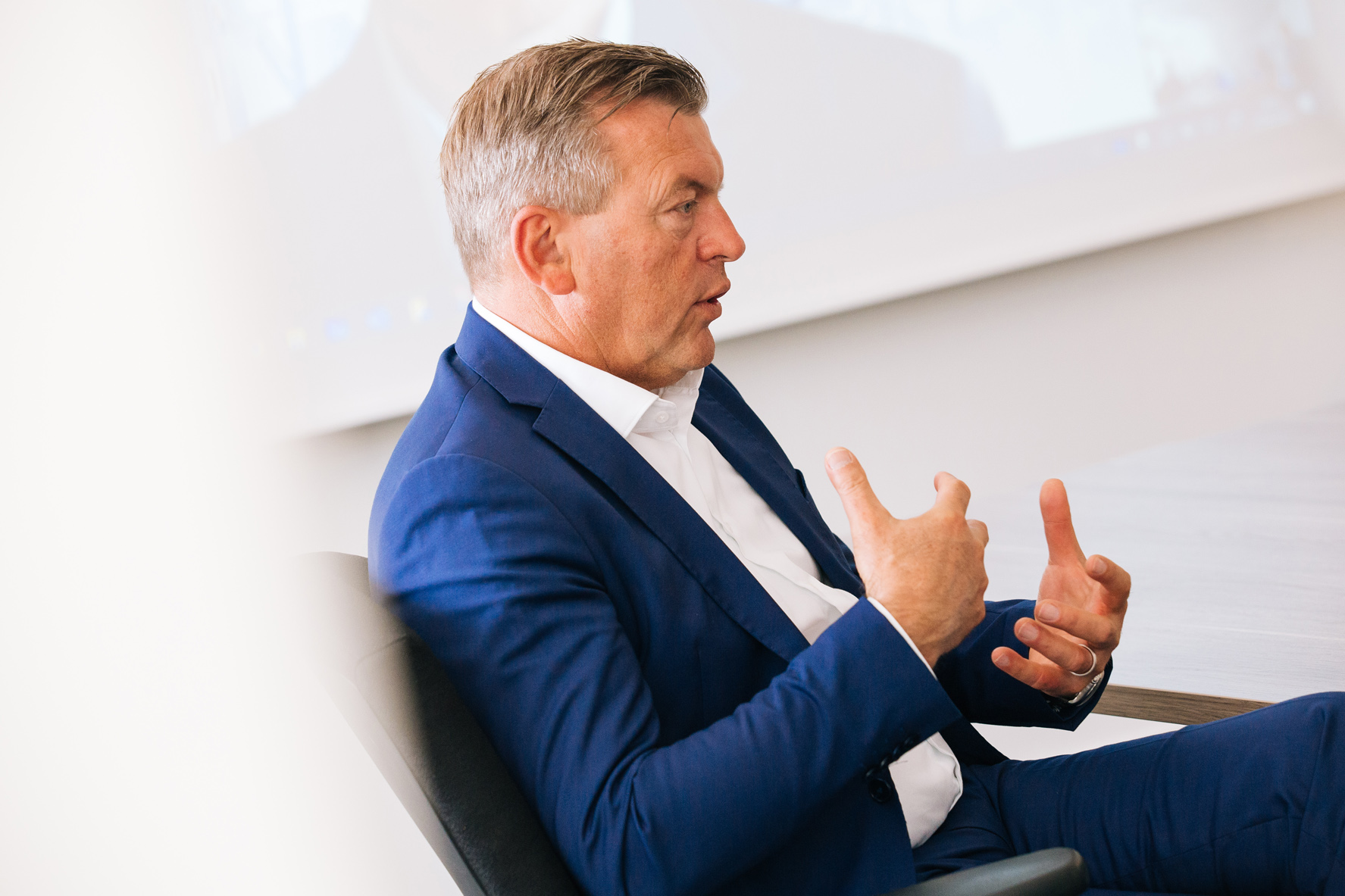
J-BIG: What do you think makes the cooperation between Japanese and Germans valuable?
Ralf Laber: I like to use the image of a luggage belt at the airport. Have you ever observed the care and commitment with which people in Japan collect their luggage from the luggage belt? If I treat a suitcase with care, it will last longer. That also describes well what it means for me to work with a Japanese headquarter. It is this self-image of valuing things and living without waste. I simply see this as part of Japanese culture, and for me it’s a matter of attitude from which we can learn.
J-BIG: What do you think makes the cooperation between Japanese and Germans valuable?
Ralf Laber: I like to use the image of a luggage belt at the airport. Have you ever observed the care and commitment with which people in Japan collect their luggage from the luggage belt? If I treat a suitcase with care, it will last longer. That also describes well what it means for me to work with a Japanese headquarter. It is this self-image of valuing things and living without waste. I simply see this as part of Japanese culture, and for me it’s a matter of attitude from which we can learn.
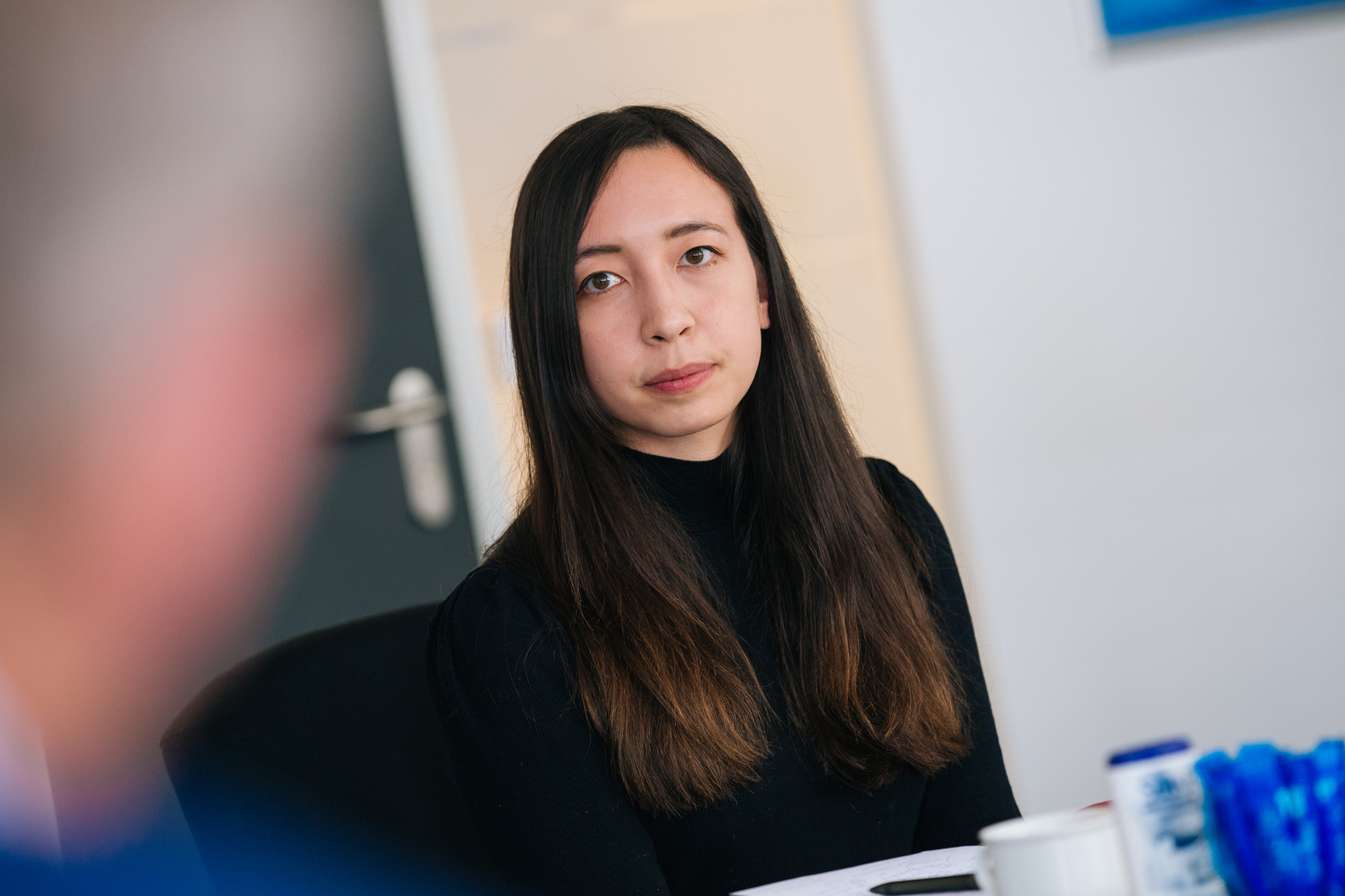
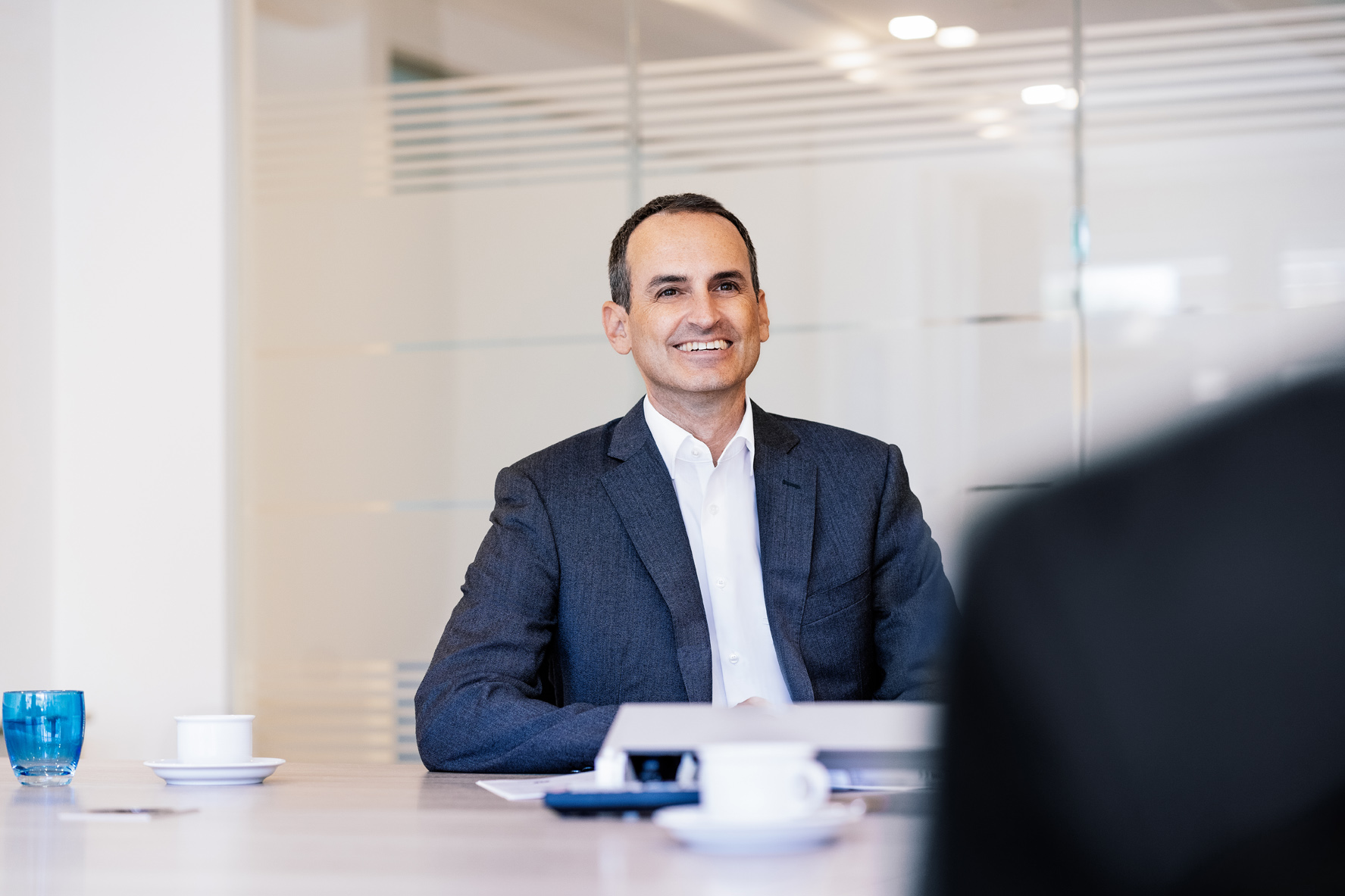
J-BIG: Why would a young engineer today go to a Japanese company like SMC and not to a German competitor?
Ralf Laber: I really see the big difference to other companies in the fact that SMC is a very long-term thinking company. For us, sustainability does not simply mean CO2 reduction, but we have integrated the topic very much into our corporate culture. I think a lot of companies are looking at rating firms in this sustainability era. But I am sure that sustainability has to come from within. Our DNA already has the Sustainable Development Goals in it – and that’s what sets us apart. Choosing an employer is not only about a nice building, but also about the whole culture.
Pascal Borusiak: SMC is also in a very stable financial position. We have almost 90 percent equity capital and if we need to double or triple production lines, we can do so quickly with our own resources. This ensures stability, planning and a long-term perspective. We will also be investing a lot in Germany over the next few years. That means we will build a completely new production facility and a completely new warehouse. We will double our development centre and greatly expand our laboratory capacities. That puts a glow in the eyes of engineers. Our group grew by a good 30 percent last year and in general we are in an exciting growth market.
J-BIG: Can you tell us a little more about the corporate philosophy of your founder Yoshiyuki Takada?
Ralf Laber: I met Mr Takada around the year 2000 and he was always talking about customer satisfaction. It was very important to him to connect with our customer, to build a good relationship and not only to satisfy him materially or financially. He lived this very much and it also shaped me. Without relationships, you remain the supplier in business. With relationships, a long-term partnership develops. I also try to convey this to our employees. Because if we want to win new customers in the long term, we have to build a basis of trust.
Christian Ziegler: From a sales perspective, I can only underline this statement. We very rarely lose a customer. That means that if we have won a customer, it hardly ever happens that after three or four years he says: “No, this partnership doesn’t work for us.”
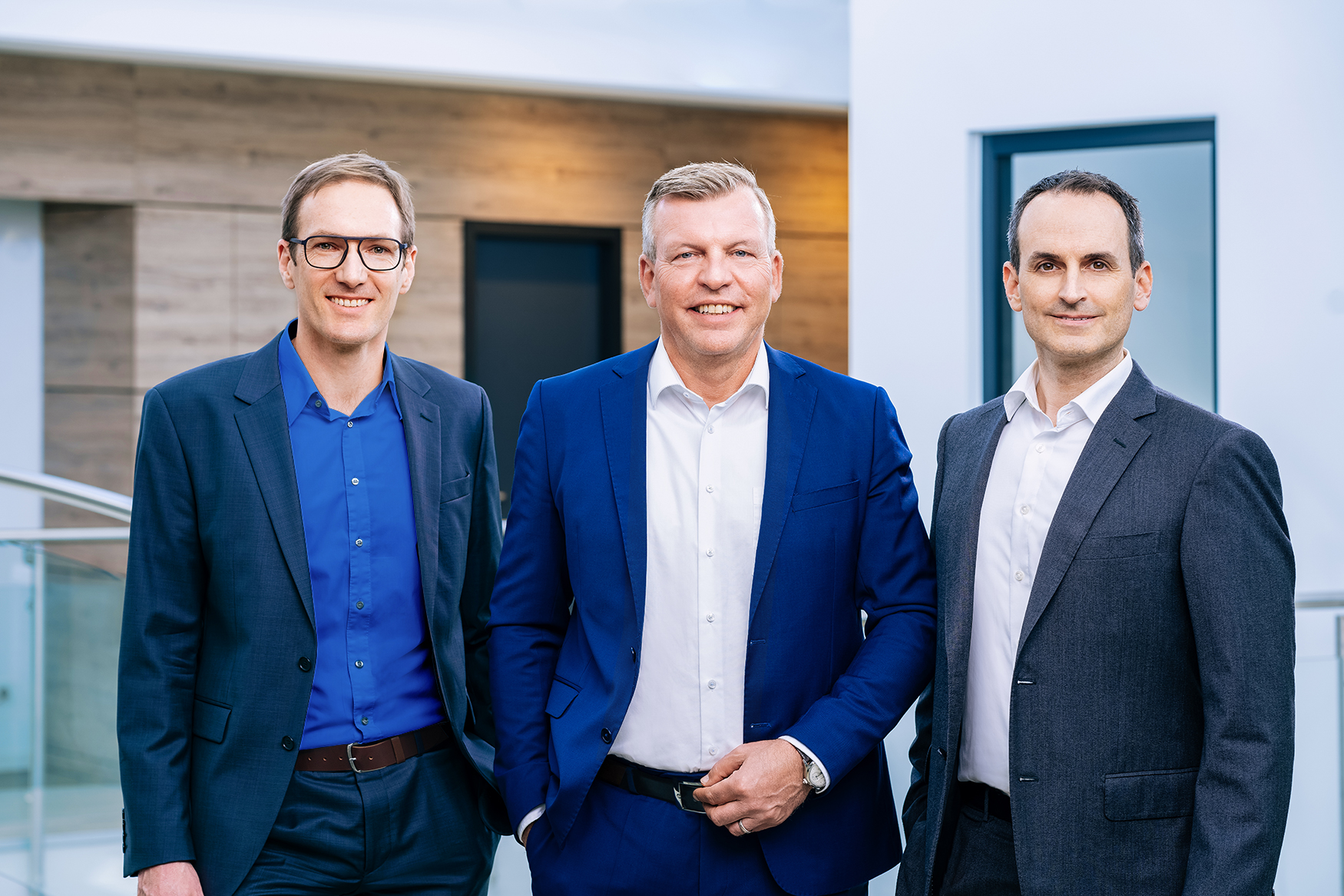
J-BIG: Finally, let’s take a look into the future: what will happen next at SMC in Germany?
Pascal Borusiak: We will continue to expand our location. That is certainly a major milestone of the next few years. And we are CO2 neutral again this year. We will continue to pay attention to sustainable energy use and have to compensate less and less CO2. We will continue to expand our production and logistics. Since 2007, we have had our own technical centre in Germany. This means that there are engineers on site who respond to customer requirements and do product development. We want to expand this approach in Germany and double our team of engineers by 2030. That is why we will work more closely with universities as well.
Christian Ziegler: Corona has massively accelerated the digital transformation. This means that we have a very large sales team that is used to travelling to the customer and exchanging ideas. Today, we work 80 per cent digitally and 20 per cent face-to-face with customers. That changed during Corona, when no on-site visits were possible. We have to think more about how we can win customers remotely. How we can train our staff in other ways to go along with this change. That will keep us busy for the next few years.
Ralf Laber: And then we will accompany our Japanese colleagues to strengthen the company-wide cultural change that was triggered by the change in leadership. With supporting this change process, we can give something back to our Japanese colleagues, after having benefited from their support in many cases as well. This mutual support brings us even closer together.



